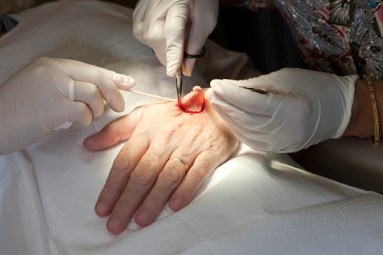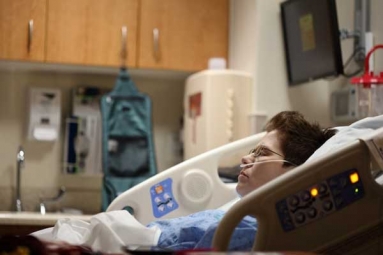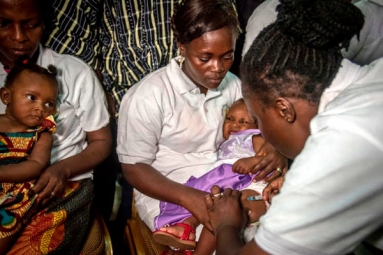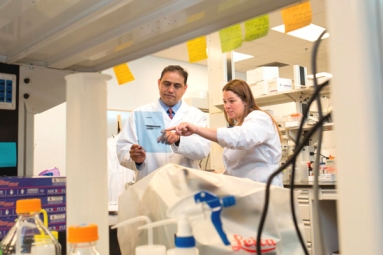Ebola Vaccine Shows 100% Success In Trials Conducted In Guinea
August 01, 2015 09:37
(Image source from: })
A vaccine against Ebola has been shown 100% successful in trials conducted in Guinea during the epidemic and is expected to bring an end to the current epidemic and future Ebola outbreaks in West Africa.
The trial involved 4,000 people and is considered remarkable due to the speed with which the Ebola vaccine was formulated and tested. This was possible because of the collaboration between doctors, scientists, donors and drug companies. Norway helped in funding the trial.
Norway foreign minister Borge Brende said, “Having seen the devastating effects of Ebola on’ communities and even whole countries with my own eyes, I am very encouraged by today’s news.
“This new vaccine, if the results hold up, may be the silver bullet against Ebola, helping to bring the current outbreak to zero and to control future outbreaks of this kind. I would like to thank all partners who have contributed to achieve this sensational result, due to an extraordinary and rapid collaborative effort,” he added.
Ebola epidemic and trial
A total of 27,748 cases of Ebola were recorded in Guinea, Sierra Leone and Liberia up to 26 July. And deaths reported were 11,279. However, outcome of many cases is yet to come into light.
As a gold standard approach, in a trial, half of the population at Ebola risk will be vaccinated while the other half will be given placebo. But this time, researchers used ring design. Similar approach helped in 1970 to prove the small pox vaccine. All contacts of sick people have been vaccinated when Ebola flared up in a village. However, children, pregnant women and adolescents were excluded due to safety issues.
To test the efficiency of vaccine, researchers randomly assigned the vaccine immediately or three weeks after Ebola was confirmed. No single case of Ebola was noted 10 days after vaccination among the 2,014 people who were vaccinated immediately. Thus, time required to develop immunity was allowed. While, out of 2,380 who were given delayed vaccination, 16 cases reported the disease.
The results of the study were published online in the Lancet medical journal.
-Sumana











